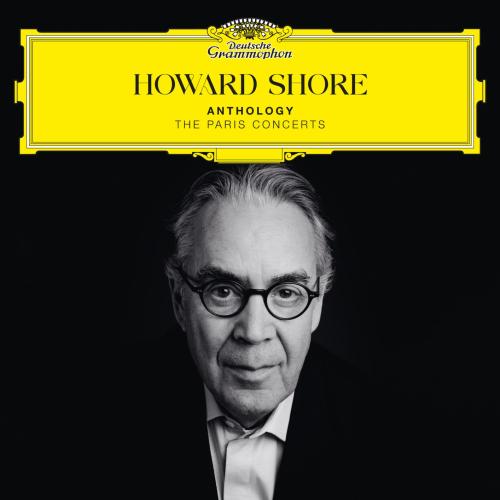A Howard Shore weekend, that’s what Parisians were treated to in the spring of 2023. We’re jealous. While we wait for someone in Montreal to decide to pay this kind of tribute, in his presence, to this Canadian adored by film lovers and even beyond, we can immerse ourselves in the sumptuousness and undeniable emotional power of his writing, which is just as epic as it is subtle.
Imagine the splendid Orchestre philharmonique and Maîtrise de Radio France performing one of the most exceptional film scores of our time, The Lord of the Rings, The Fellowship of the Ring, in a beautifully natural recording bearing the famous yellow label.
What’s interesting, beyond hearing this iconic score again in a new version, is hearing the personal vision of its composer. Howard Shore, here freed from the constraints of time and the need to synchronize with the images, gives us a reading that seems to me, frequent listener of the original version, to be more ‘fulfilled.’ The melodic phrases seem to take on an instinctive fullness, carried by legatos encouraged by the maestro and underlining all their nobility or menace, depending. In “The Halls of Durin,” for example, when, in the darkness of the Moria, the poignant magnificence of the architecture of the vanished Dwarves of the Durin tribe is revealed, it sends shivers down our spines. From the very first chords of the opening, so recognizable, we are swept up and transported into this fantastic world, complete, immense, infinite in its possibilities. “Gandalf’s Lament,” heard discreetly in the film, is here magnified and returned to the nature of its title with the presence of a vocal soloist with exotic accents. And so it goes on. Yes, film music scores, good ones, can have a life off-screen just as nourishing as ‘concert’ music. Here’s the proof.
I’ll just quibble about the bass voices in “Durin’s Bane,” the famous scene involving the colossal Balrog, which lack roundness and … bass. And also on the solo voice that immediately follows, illustrating Gandalf’s fall into the abyss. No, it doesn’t do it at all this time. A quavering soprano voice has been chosen, whereas the score calls for a young boy with a pure voice and no vibrato. But that’s the nature of interpretations. Music lives and doesn’t always vibrate fully, in every corner, to the same rhythm as our sensations.
The long suite extracted from The Lord of the Rings, volume one (we’d like to have the equivalent for the other two by the same forces) essentially fills the first of the two albums in this production. Added is a very fine extract from the score of the first film of The Hobbit trilogy, a beautiful soliloquy for oboe and orchestra.
The second album is devoted to suites from other Shore film scores: Crash, The Fly (also the subject of a Shore opera, but not performed here), Ed Wood, Naked Lunch, and a few others.
I didn’t remember the music for The Fly (for director and friend David Cronenberg). Here I discover a score that oscillates between atonalism, dissonant modernity and neo-romanticism. For those interested, his opera on the same subject is very interesting. The following scores bear witness to equally emblematic collaborations: Cronenberg again with Naked Lunch (a dark Britten-esque atmosphere interspersed with jazz saxophone solos) and Crash, the least traditional score on the programme, with its mysterious, metallic settings for electric guitar, percussion and chamber orchestra, which bring to life this strange cinematic vision of a world of erotic fetishism associated with cars. The tribute to Shore’s collaboration with Tim Burton is well and truly felt, thanks to a colorful and sometimes funny three-movement suite for theremin and orchestra taken from the music of the film Ed Wood, a biopic, sort-of, about a B (even Z) movies director of the 1950s through 1970s (remember the catastrophic, but iconic, Plan 9 from Outer Space? That’s him).
This is an album that paints a flattering and generous portrait of a composer who knew how to adapt his pen to all kinds of situations while constantly maintaining a very high degree of inspiration and dramatic power.
Highly recommended.
























